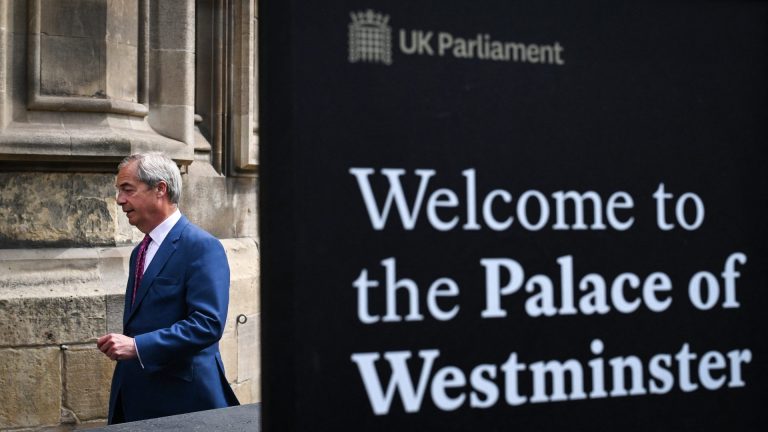The immediate aftermath of a landslide general election victory won on just 33.7 per cent thanks to the vagaries of first past the post seems like an odd time for Labour to start thinking about electoral reform. But that is exactly what they should be doing.
To its credit, Labour is well aware that its success on July 4 is unlikely to be repeated at anywhere near the same scale in 2028 or 2029. Within a day of Keir Starmer taking office, Labour’s main strategist Morgan McSweeney committed to preparing for the next election “like an insurgent,” indicating that the party is aware that its gains were mainly due to the collapse of the Conservative Party’s electoral base.
Similarly, the party is aware of how the Conservatives’ own 14-year Downing Street reign was primarily attributable to how Liberal Dems and Labour themselves fell victim to their own bases collapsing in 2015 and 2019, respectively.
What then, could Labour do to ensure it has stronger chances for the next election beyond its already stated plans? Considering how Labour barely increased its national vote share by less than two per cent between 2019 and 2024, the party would do well to seriously examine how Britain’s antiquated FPTP electoral system exponentially magnifies the impact of party base erosion.
On top of that, FPTP appears to encourage mainstream parties to take up more extreme views. While Starmer’s Labour may be a significant break with Jeremy Corbyn’s, the next Conservative Party leader is likely to come from the party’s most extreme wing, and polarisation would only be amplified should a more radical Conservative Party under and Reform UK choose to forge an electoral alliance together.
The Labour government should thus realise that it has a historic opportunity to eventually replace FPTP if it works with other progressive parties (namely the Liberal Democrats and Greens) in parliament. With the largest majority that progressives have had in British political history and a collective national vote share of approximately 51 percent, these parties could form a progressive alliance together to feasibly argue they have a democratic mandate to consolidate the UK political system from polarisation and the sweeping collapses of party bases.
A progressive alliance of this kind would not involve the Liberal Democrats and Green parties entering into government with Labour, but it would entail Labour cooperating closely with them to determine how to best represent the public’s growing appetite for progressive political reform. Missing such an opportunity would not only leave an already weakening electoral system in continued disrepair, but also lose the trust of the public that has voted in favour of progressive change.
Unlike Labour, the Liberal Democrats and Green parties already agree that the best solution to stabilising UK politics would be to introduce some form of proportional representation (PR) for our parliamentary system. Notwithstanding how Starmer has declared his opposition to PR reform, the vast majority of his party’s membership are in favour of it.
That being said, serious PR electoral reform will not be a straightforward process. Any “pure PR system” using party lists would remove all local ties to sitting politicians and potentially enable party cronyism by rewarding party loyalists above more popular political figures. To balance some of the benefits of the FPTP with the need for PR, the singer and activist Billy Bragg proposed replacing the House of Lords with a “secondary mandate” upper chamber elected by PR, an idea that The Economist officially endorsed shortly after its introduction.
However, even if the Starmer government reversed course on its opposition to PR reform, what will likely prevent the Labour government from seriously considering this secondary mandate proposal further is Labour’s manifesto commitment to oversee the eventual replacement of the Lords with “an alternative second chamber that is more representative of the regions and nations.”
The wording of the pledge suggests that this structure to replace the Lords would not be based upon PR but rather take a form akin to the Assembly of the Nations and Regions, an upper chamber proposed by the Brown commission. It would directly involve regional devolved authorities in national-level policymaking and be responsible for maintaining the powers of devolved government institutions.
Yet, there remains a way for the Labour government to endorse PR-based reform without going back on its commitment for a regionally-oriented second chamber. Alongside this chamber, Labour could instead pledge with the other progressive parties to introduce PR-based electoral reforms for the Commons.
Fortunately, there is an already-existing alternative electoral model that is gaining increasing attention within the UK. The Single Transferable Vote (STV) electoral system, which the Liberal Democrats endorsed adopting in their most recent party platform, ranks votes in multi-member constituencies.
By establishing a set quota for each candidate to reach and allowing voters to list choices ranked by preference on their ballots, votes are much less likely to be wasted as any ballots that put an already-elected candidate as their first choice will instead be counted towards their second-favourite preference, until every vacancy within the multi-member district is filled.
This system would not be new to the UK either. Britain already has experience with using STV in the elections to the Northern Ireland Assembly and local assemblies in Northern Ireland and Scotland. Additionally, the progressive alliance could draw upon the example Irish electoral system for the Dáil, which uses STV in conjunction with constituencies containing between three and five seats, depending on the population of each district.
Regardless, the STV system will not be a panacea for issues raised with PR-based electoral models. Should a progressive alliance consider adopting STV for elections to the Commons, they should be mindful of some of the key shortcomings that have emerged in the Irish system as well.
The Irish STV model heavily increases chances for intra-party conflict as candidates from the same party are forced to vie for a limited number of seats within the same districts. It can furthermore incentivise incumbent MPs to become too localist to the detriment of national policy making. Such dynamics, if left unchecked in Britain, could produce the very same base collapse scenarios that have haunted UK political parties since 2015, even if the impact of such collapses would not be as dramatic as they are under FPTP.
It is for that reason though that a progressive alliance, working in consultation with the public, could ensure these reforms be successful.
It is hard to overstate how disillusioned the UK public has become with politics and politicians, as evidenced by the low 60 percent turnout from the most recent election.
Accordingly, a major step towards recognising that the UK public has placed its faith in progressive parties would be the formation of a progressive alliance that would work to address the democratic deficits within the existing FPTP electoral system. Only then will the UK public be able to “take back control” over its governing institutions.











